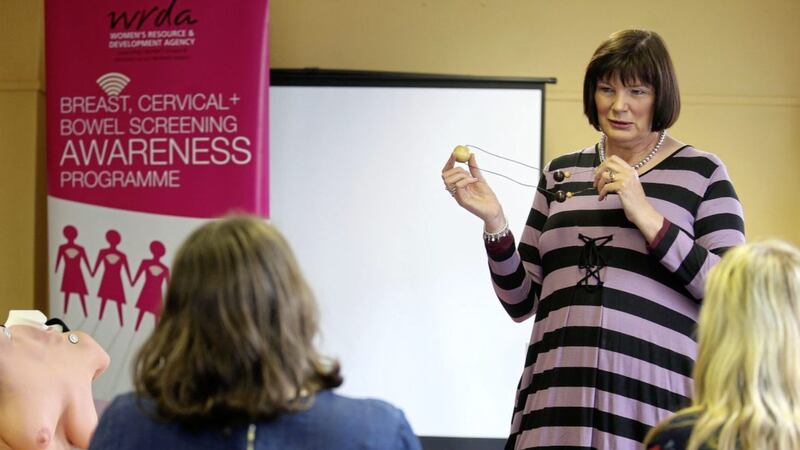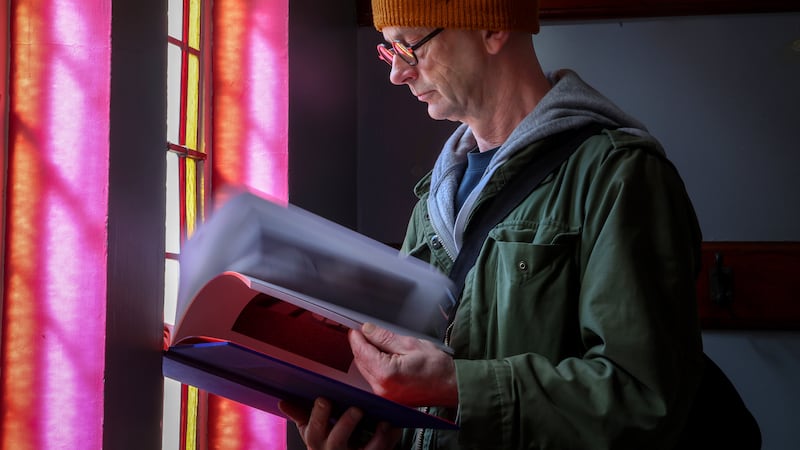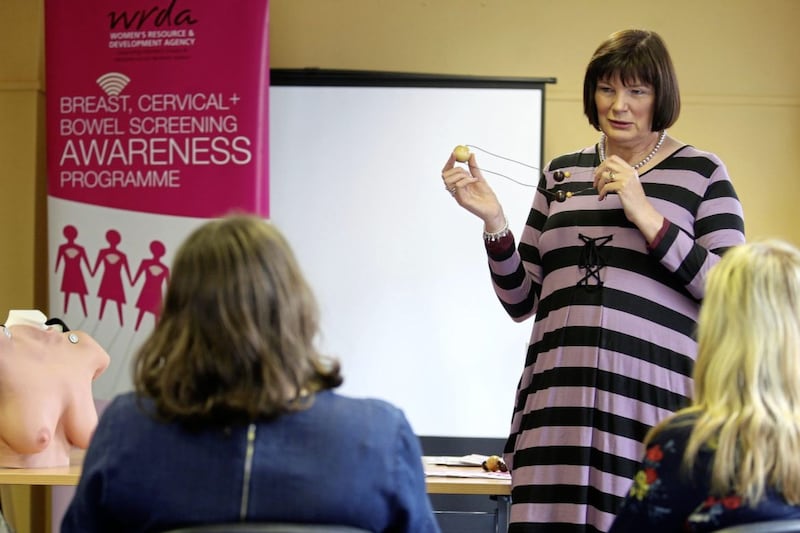I LIKE the word ‘empowerment’, especially when it comes to women. For far too long women have been perceived as home makers, child rearers and fixers – vital and natural roles and responsibilities we take seriously and conduct well.
What bigger, better or lasting job is there than being a mother; bringing up a family, or being all things to all men – cook, personal manager, nurse, councillor, head of entertainment and housekeeper?
Today, however, many women also want to achieve outside the home, not only young women but those who are in the home or retired who feel they have something to contribute.
To help with advice and opportunity, the Woman’s Resource and Development Agency (WRDA) is second to none.
WRDA is a charity working throughout Northern Ireland. Established 35 years ago the aim is to support women from all backgrounds to work towards equality and to become involved in society in general and their own area in particular – sounds like a tall order but by working with women’s groups, especially in the most disadvantaged communities, progress is being made: women are a force to be reckoned with and they are no longer shy to stand up and say their piece.
And thanks to WRDA, we are being encouraged to take time to look at ourselves and the importance of assessing how we live day-to-day.
At the moment, the organisation is working on a very important programme concerning our health: specifically cancer detection and screening, with qualified facilitators travelling throughout Northern Ireland to deliver the important message about cervical, bowel and breast cancer screening, work funded by the Public Health Agency.
Through publicity and outreach aimed at women’s and community groups, the WRDA’s professional facilitator will normally hold three two-hour sessions – the first being a breast screening awareness session lasting two hours.
It’s not so much a formal session, more an informing session, relaxed and friendly. It usually begins with a discussion about women’s fears and expectations when it comes to breast cancer with good sound common sense offered to dispel anxiety replacing it with knowledge.
One exercise is called Time for Me, the need to take time out to relax, to be aware of prioritising your health, re-establishing
your own individuality in the middle of your busy life, learning to self-examine your breasts and to be aware of what to expect when attending for breast screening.
Katherine Robertson, Training and Development Worker, put it well: “Think of the safety tips on an aeroplane and the advice that if the oxygen mask comes down, you should put your own mask on first before fixing it to anyone else, especially your child.”
That sums it up on one easy picture, if you’re not in charge of yourself you won’t be able to help others.
Another aspect is Embarrassing Bits: “Women are invited to put little stickers on the outline of the body of woman, highlighting the intimate places they find difficultly to discuss with a doctor.
“The language is examined, the mood is lightened by identifying the slang words for breasts, a word a lot of women find difficult to say out loud. Don’t we talk about our boobs or bosoms more often?”
In this a carefully constructed training session, a quiz highlights how breast-aware the women are: ‘What are the risks?’, ‘Are post-menopausal women more at risk?’, ‘If my granny had breast cancer am I more susceptible?’, ‘Can diet affect my chances of avoiding the disease?’ – and so on.
When it comes to self-examination, celebrity photos show some of the high profile stars who found breast cancer through their own examination – Kylie Minogue, singer Cheryl Crow, Olivia Newton John, Sex in The City’s Cynthia Nixon and Christina Applegate.
Next women are shown a necklace of beads, ‘breast beads’: some tiny, some small and one or two large beads, the point being if you self-examine effectively and regularly, the chances are if you find anything it will be a small bead – and how much better is that than finding a large bead – it makes sense.
“I learned things I didn’t know about,” said one woman and another added, “Potentially a difficult subject but vital to discuss.”
The women come away with a lot of information, released from their hesitation to discuss this intimate subject and with a shower card to hang up in the bathroom showing how to self-examine.
In terms of breast screening, women aged 50 to 70 are invited for screening (a mammogram) every three years and aged over 70 on request.
Cervical screening: The second session is on cervical screening and smear tests which are also important and the good news is that in general the metal instruments that were so
alarming to confront are now plastic and therefore less intimidating.
One woman told how she had delayed having a smear test for various reasons but having heard more about it was going away to arrange an appointment with her doctor.
I found it interesting that even if a woman has had a hysterectomy in some instances, if she still has a cervix, she will still need a regular smear test but this is something to discuss with the doctor. If registered with a GP, women between 25 and 49 will automatically be invited to have a smear test every three years, between 50 and 64 every five years.
And finally, bowel cancer screening awareness sessions are also part of this initiative for both men and women; between 60 and 74 test kits are sent by post every two years.
“My dad got a test kit but didn’t know what to do with it,” one person told me.
“I’m going home to explain and tell him just how important it is.”
The proof is in the pudding. Katherine told me how, when working with groups, be it breast, cervical or bowel, in every case someone has found something to be investigated, proving that it really is a case of the sooner you check yourself out, the better.
n More details at WRDA.net



